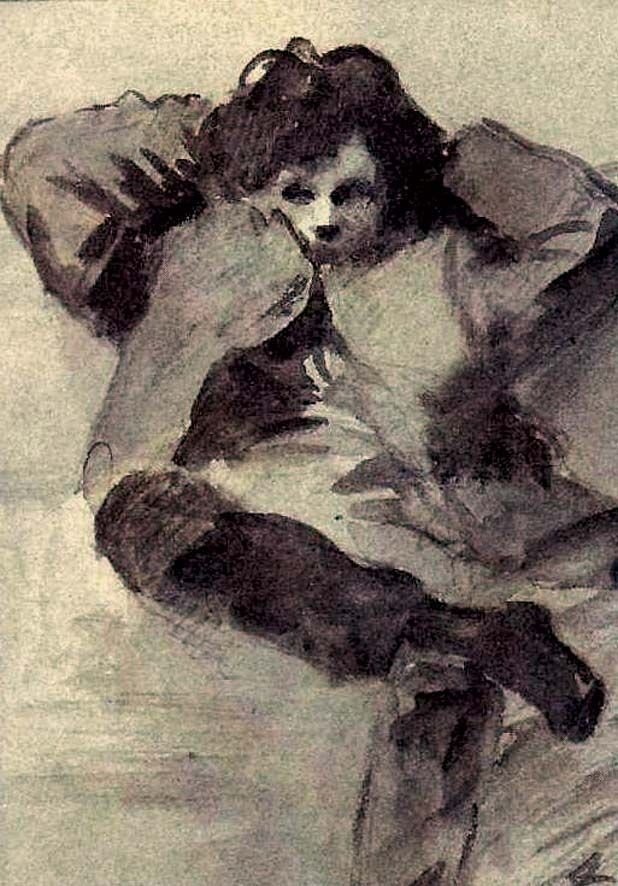The work of Rimbaud , created during his early youth, in after 1869 is quite bulky and would fill a solid volume. It consists, in general, of short poems, sonnets, trillions, works in four, five, and sixteenth verses. Acquainted early with the literary program and the aesthetic paraphernalia of the Parnassists and Symbolists, the Rimbaud poet very quickly distanced himself from these literary trends. He made his own unique way of writing, which is predetermined by his daring insight that the poet should be built above all as a clairvoyant. His theory, which refers to clairvoyance, makes sense only as the starting point of his poetic activity, which otherwise proceeds as an autonomous creative process. The creative process is like a seemingly chaotic string of lonely lights. Rimbaud does not belong to any of the currents and schools that appeared in France in the second half of the nineteenth century.
At the age of sixteen, Rimbaud met Georges Izabbar, a twenty-two-year-old teacher, to whom he attached to him and honored him as an authoritative scholar of French poetry at the time. The talented adolescent shows him a great deal of poems he wrote. Obviously, in his first attempts, he followed the specific poetics of the French Lyrical School Parnass / Neo-Romantic School in the 1960s, in which he behaved on the objectivist lyrical expression and the perfect form and the main pursuit of the followers it is the achievement of "pure poetic skill" ./ In October 1870, after fleeing from his native home, Rimbaud found refuge in Izambar, where he met the poet Paul Demmeni. It is to him that he transmits a copy of all his poems written until that time. This transcript, consisting of two notebooks, later became known as the "Demoney Collection". This is the only one designed by the Rimbaud collection itself. In it the adolescent includes old texts and nine entirely new works (written during the the second Rimbaud flight). . In the beginning, the poet's poetry is filled with book reminiscences, even with pastiers / literal imitations / by the poets, his contemporaries, Charles Baudelaire and Victor Hugo. He could be described as "gentle," though there are already some poetry challenges: Rimbaud gives the right to the presence of new "non-poetic" words in poetry, surprises with embarrassing logic images. In them a sort of devastating mockery appears, logic is respected, although the rhythm of Rambo bohemian is already manifested. The first collection of Rimbaud "Poems" includes poems written during the period 1869-1872. He begins with "Orthelnes des Orléans" and contains 22 more poems written by the author for his friend in 1870. Later, Rimbaud adds 21 more works inspired by the war and the hated closed world of his hometown of Charles de Gaulle, renamed by the poet adolescent in Charleston. At the end of the collection, the poem "The Bateau IVre", which Rimbaud created with the intention of provoking his friend, Verlaine, brought him in the middle of the Paris literary bohemia after his escape from home.
The main themes developed in the collection are: the happiness that travels and the roaming life, the connection between happiness to write and the happiness to live, the anger that provokes the philistine cunning, the scams and subversions of the social environment and modern history; the binding of poetry with clairvoyant enlightenment, which allows the introduction of new language and images in poems; the realization that the poetry and the search for the absolute are overlapping intellectual commitments. In Poems, the impression is that clairvoyant poetry is inspired not so much by the personal experience of the poet or by his spontaneous writing style as by his insight that the lyrical expression should be radically upgraded. In 1874, the rebellion between the two friends of Rimbaud and the Verlaine deepened and expanded: Rimbaud made a decisive choice, pointing to the "other poetry" of the "alchemy of speech," relying on the data coming from the senses, while Verlaine returned to " bluish "subjective poetry prefers lyrical confession. Imbued with vertigo over the impassive wandering of his own soul, Rimbaud compiled the cycle "A Season in Hell," which could be described as a feverish wandering of his own hell inhabited by himself, his poetry, and by Verlaine.

Pleasant content.
hey @godflesh i am vote your post so plz vote my post @dilip77
Awesome post @godflesh